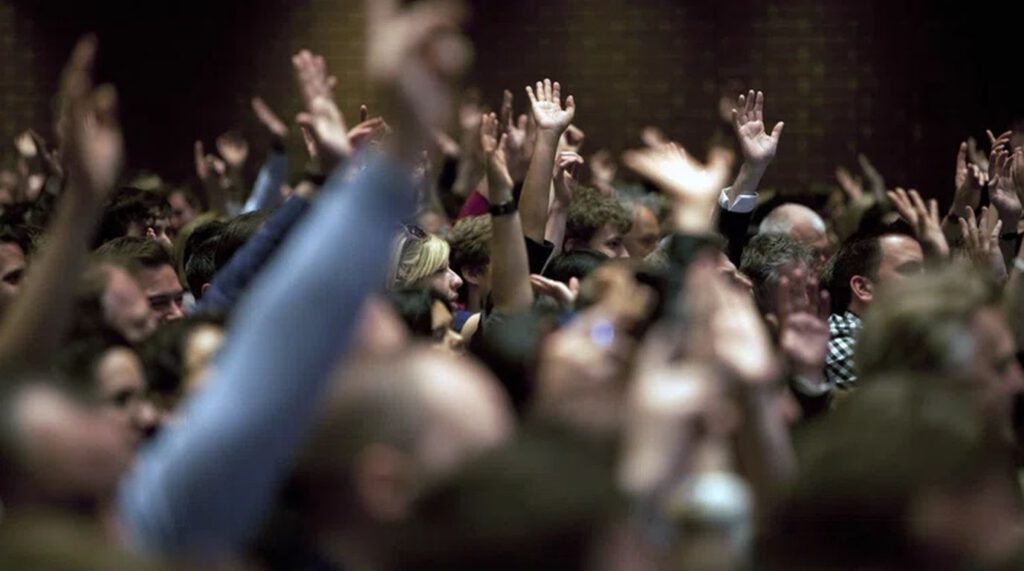What is “Anchoring”?
Whether in committee meetings, seminars, or everyday conversations, we’ve all likely encountered a situation where an early topic or opinion sets the course for the entire discussion. This is a classic example of what philosophers, social psychologists, and behavioral economists refer to as anchoring.
Anchoring can occur in all kinds of contexts. Classical experiments have shown that when we, as individuals, think about certain facts or decide what to do, we tend to be overly influenced by information that is provided early on. A classic example of this is when we are asked to estimate a quantity, for instance the number of people living in Bayreuth. If we simply ask people for their best estimate, we might get answers centered around a certain mean, which might turn out to be very close to the correct answer (~72,000). However, if we “anchor” people’s deliberation around a certain value, we might get very different results. If we ask, for instance, how far below or above 50,000 the number of people living in Bayreuth is, we might get answers much closer to the anchor (50,000), even from people who would have originally guessed more or less correctly.
Anchoring can also occur when we are thinking about certain facts or deciding what to do collectively, that is, through group deliberation. As mentioned at the beginning, we probably all have some anecdotal evidence of committee meetings that end up being all about topics or opinions that someone voiced early on, even though there were many more (and sometimes more important!) things on the agenda. Some experimental results also support these personal observations, although here the evidence is more mixed, especially when the deliberation ends with a vote. In these cases, the opinions expressed late in the discussion might also end up having a disproportionally strong influence.
Why do we get anchored?
What are the mechanisms that drive anchoring? Most psychological explanations involve some type of cognitive bias or limitations. In other words, we get anchored because we make mistakes or don’t think straight. Confirmation bias is a good example of that: we get anchored because we tend to evaluate evidence that comes in late in terms of how consistent it is with the things we learned early on, rather than in and of itself.
Thinking of anchoring as the result of our individual biases suggests that if we were better, unbiased reasoners we wouldn’t get anchored. But is that really the case? Would ideal individual or group deliberation really avoid falling into the trap of anchoring? Or is anchoring also something more “structural” resulting from the way deliberation itself is set up?

Anchoring occurs even without cognitive limitations
In a recent paper forthcoming in the journal Erkenntnis, we tried to answer these questions by combining, in a truly P&E fashion, computational philosophy and empirical economics methods. Building on a simple model of deliberation developed in an earlier paper, we studied whether anchoring can occur under very idealized circumstances, and how strong the anchoring effect is compared with other possible ways in which group discussions can be influenced, such as when some group members have “expert” status, or when many people in the group share the same opinion.
We found that, in this computational model, anchoring not only occurs very frequently, but that it interacts with expertise in very interesting ways. For one thing, the anchoring effects turn out to be much stronger — sometimes 10 times stronger! — than expertise as soon as the group of deliberators is larger than 5 participants. Expertise and anchoring also amplify each other in non-additive ways. When “experts” speak early, they are virtually certain to have the strongest influence on the outcome of deliberation, much more than the sum of the influence they would have had if they had been “just” the expert or had “only” spoken early. How early then do people have to speak? In our model the answer is very early: the first and the second speakers get overwhelmingly strong influence and, after that, everyone else’s opinion becomes only marginally significant.
What to make of these results? They provide evidence to the effect that anchoring might not just be a matter of us not reasoning well. Rather, anchoring might come from the very structure of group deliberation. In other words, to avoid anchoring, it might sometimes not be enough to give the participants more time to think, or to “debias” them. We might also have to look for structural or institutional solutions, like splitting the participants into subgroups, or presenting them with aggregated summaries of the opinions of others.
The fact that anchoring might be a structural bias of deliberation is also an important datum in political philosophy and epistemology. For example, in answering the question of what makes a political decision legitimate, many authors have resorted to deliberation because it is supposedly fair, because it gives the participants equal chances to influence the decisions (i.e. they are guided only by “the force of the better argument”) or because deliberation is a good or reliable knowledge-production mechanism. Many of these claims can be challenged if anchoring is really a structural bias of deliberation. Is deliberation fair if, even when bracketing all our cognitive and reasoning biases, those who speak early get systematically greater influence? How can we speak of equal opportunity to influence the outcome if things are pretty much settled after two or three interventions? And is deliberation still a reliable way to produce knowledge if it is not clear who the experts are, and the “real” experts end up speaking too late?
Interested in learning more? You can check out the preprint of the paper on the phil-sci archive, or play with the code and the replication data available here. Enjoy!
About the authors: Soroush Rafiee Rad was postdoc at the philosophy department, and is now working in Amsterdam. Sebastian Till Braun is Chair of Quantitative Economic History at the University of Bayreuth, and Olivier Roy is Chair of Philosophy 1 in Bayreuth as well.

Leave a Reply